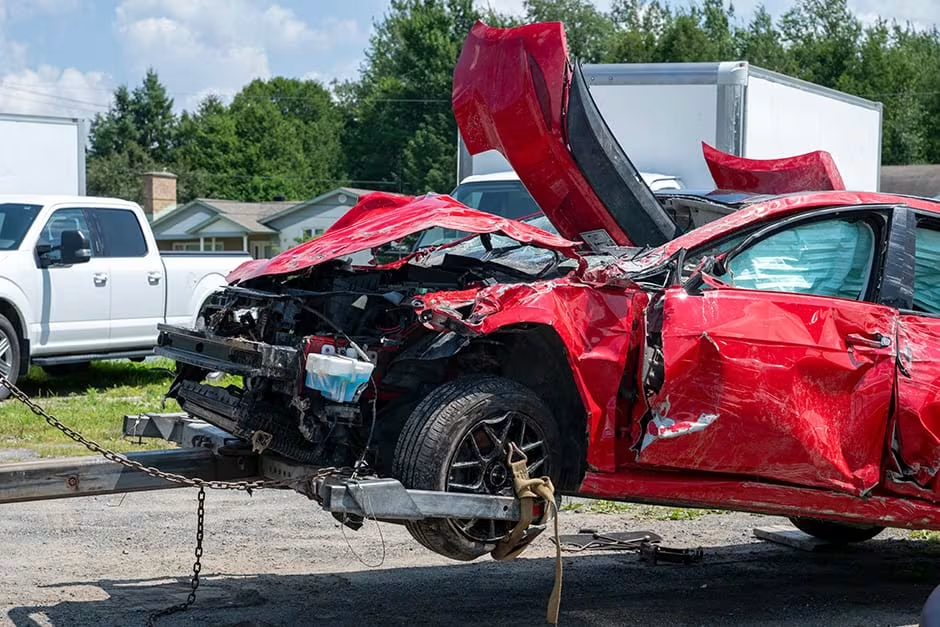A car accident can lead to extensive damage to your vehicle and severe harm to your body. The at-fault driver may be held personally responsible for the accident and subsequent financial and non-financial damages, depending on the circumstances. This may be paid through an insurance carrier claim or by filing a lawsuit against the defendant.
Can you be personally sued after a car accident? The answer is yes. However, the full answer is not really that simple. We explore your liability following a car accident and what you can do if you were the victim in a collision.
Pursuing Compensation After a Car Accident
Car accidents happen all the time. For example, 4,497 people were killed in Texas motor vehicle accidents in 2021, up 15% from the previous year. There were 15,769 serious injury crashes in that same year. In those crashes, a total of 19,456 people were seriously hurt.
If you suffer catastrophic injuries in a car accident, several parties may be liable. Some of these parties may be simultaneously responsible for reimbursing you for your costs and suffering.
Filing a Claim Against the Driver’s Insurance Company
Drivers are obligated by state law to have car insurance. Insurance ensures drivers are responsible for their actions and can pay for injuries they may cause. Following an accident, if you can, ask for the other driver’s insurance information, including what insurance company they use, their policy number, and a phone number. You should also collect contact details for the drivers themselves.
You can file a claim against the insurer in two ways. First, you can file a claim directly with the insurance company. This process happens outside of the courtroom and does not, at least initially, require you to file a lawsuit. Even then, having an experienced car accident lawyer ready to help you is best.
Insurance companies and their adjusters use clever and often unfair tactics to lowball you on claims or try to deny payment altogether. They ask pointed questions that might trick you into admitting total or partial fault for the accident. This can negatively affect your claim or result in a smaller payout for your damages.
You can also file a personal injury lawsuit against an insurance company if it is unwilling to pay your claim. When this happens, you and your attorney file a civil lawsuit against the driver, their insurer, and any other party that may be financially responsible for your injuries.
Filing Against the At-Fault Driver Directly
You may have to file against the at-fault driver directly in several situations. The other driver is often insured, but their insurance company refuses to pay fair compensation. When this happens, you can file a car accident claim against the negligent driver individually and name their insurance company. This may also be appropriate if the driver does not have coverage or has insufficient insurance to pay all of your damages.
Filing a lawsuit involves several steps before you win compensation. These steps might include:
- Filing a complaint in court
- Receiving an answer from the defendant or defendants
- Investigating the case as part of the discovery process
- Negotiating a potential settlement
- Preparing for trial
- Going to trial and proving your case
Limitations of Filing Against the Driver Directly
There is no question that an at-fault driver may be held personally responsible for your injuries. However, the practical reality is that few individuals have the resources to pay your entire claim. You could suffer serious injuries and terrible property damage. It may be difficult or impossible for an individual to pay you total compensation with their limited resources.
The same is true if the at-fault driver has only minimal insurance. In that case, you may be compensated to the insurance policy’s limits and not much else. However, every bit helps. A qualified lawyer understands these complexities and how to seek full compensation.
Uninsured and Underinsured Motorist Claims
You may be able to recover compensation through your insurance when the other driver cannot do so. Many drivers have uninsured/underinsured motorist (UM/UIM) coverage as part of their own policies.
This provision is designed to kick in when the other driver has no insurance or not enough to cover your total damages. You can file a claim with your insurance company to help make up the difference. This will depend on your insurance policy and whether you have UM/UIM coverage.
Sadly, even people’s own insurance companies try to get out of paying these policies. This is unfair but all too true for many injured drivers. It may take the skills of a seasoned negotiator and litigator to force your insurance company to compensate you appropriately.
Compensation in Texas and Louisiana Car Accident Lawsuits
If you choose to seek financial compensation personally from the at-fault driver, their insurance company, or other liable parties, available compensation will often include the following:
- Costs of rehabilitation and physical therapy
- Past and future medical expenses
- Lost earnings or lost earning potential
- Home modifications resulting from a disability
- Pain and suffering
- Loss of companionship and support
- Disfigurement or scarring
- Wrongful death damages
This compensation may help you get back on your feet after a serious car accident. These costs can pile up quickly, leading to stress and financial hardship. You may seek monetary damages from the at-fault driver if necessary.
Personal Liability in Car Accidents
You or another at-fault driver can be held personally liable after a car accident. This ultimately depends on the driver’s insurance status and the extent of the injured party’s damages. In any case, you do not have to face this difficult prospect alone. You have legal options to help you pursue the compensation you deserve.
Sources:
- Texas Department of Transportation. Texas Motor Vehicle Crash Facts. Calendar Year 2021.
- Texas Department of Insurance. Auto Insurance Guide.





